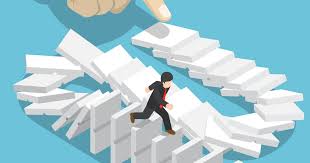
The Impact of Disruption on Modern Society
Disruption has become a prevalent theme in modern society, affecting various aspects of our lives. Whether it’s technological disruption changing industries, social disruption altering norms, or environmental disruption threatening our planet, the consequences are profound.
Technological disruption, driven by rapid advancements in artificial intelligence and automation, has reshaped industries and job markets. While it brings efficiency and innovation, it also raises concerns about job displacement and economic inequality.
Social disruption challenges traditional values and beliefs, leading to cultural shifts and debates on issues like gender equality, diversity, and human rights. These disruptions can be divisive but also pave the way for progress and inclusivity.
Environmental disruption, manifested through climate change and natural disasters, poses a significant threat to our planet’s sustainability. Rising temperatures, extreme weather events, and biodiversity loss demand urgent action to mitigate their impact on ecosystems and human populations.
In response to these disruptions, individuals, communities, businesses, and governments must adapt and innovate to navigate the changing landscape effectively. Collaboration across sectors is essential to address complex challenges such as inequality, climate change, and social injustice.
While disruption can be unsettling and challenging, it also presents opportunities for growth, resilience, and transformation. Embracing change with a forward-thinking mindset can lead to solutions that benefit society as a whole.
As we navigate an era of unprecedented disruption, fostering creativity, empathy, and sustainability will be key to shaping a more equitable and sustainable future for generations to come.
Frequently Asked Questions About the Term “Disruption
- What is the term for disruption?
- What is disrupt meaning in English?
- What is the synonym of disrupted?
- What is a disruption meaning?
What is the term for disruption?
The term commonly used to describe disruption is ‘disruptive innovation’. This concept, popularized by Harvard Business School professor Clayton M. Christensen, refers to the process by which a new product or service enters the market and eventually displaces established competitors. Disruptive innovation often involves introducing simpler, more affordable solutions that cater to underserved or overlooked customer segments, leading to significant changes in industries and business models. This term encapsulates the transformative impact that disruptions can have on existing markets and practices.
What is disrupt meaning in English?
The term “disrupt” in English refers to the act of causing disturbance or interruption to a process, system, or established order. When something is disrupted, it is typically thrown into disarray or prevented from functioning smoothly. Disruption can be intentional, such as in the case of innovative technologies shaking up traditional industries, or it can be unintentional, like unexpected events that derail plans or routines. Understanding the concept of disruption is crucial in navigating the dynamic and ever-changing landscape of modern society, where adaptability and resilience are key traits in responding to challenges and seizing opportunities for growth and progress.
What is the synonym of disrupted?
When considering synonyms for “disrupted,” one may encounter alternative terms such as disturbed, interrupted, or unsettled. These words convey a sense of interference or disturbance to a process, system, or state of order. Understanding these synonyms can help in effectively communicating instances where continuity or smooth operation has been disrupted or hindered.
What is a disruption meaning?
The term “disruption” refers to a significant disturbance or interruption that alters the normal flow or operation of a system, process, or industry. In various contexts, disruption can be caused by technological advancements, social changes, environmental factors, or unforeseen events that challenge existing norms and practices. Embracing disruption often involves adapting to change, innovating new solutions, and reimagining traditional approaches to address emerging challenges and opportunities in a rapidly evolving world.
